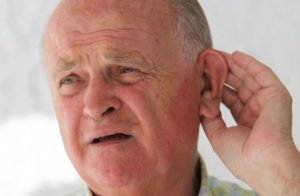 “Could you please speak a little louder?”
“Could you please speak a little louder?”
Age-related hearing loss affects almost half of Americans above the age of 75. Because the loss is usually gradual, many people do not realize they are having problems with their hearing. Studies show that a person with a mild hearing loss is three more times likely to fall than someone with no hearing loss and that hearing loss increases the risk of dementia and cognitive decline in older adults.
The National Institutes of Health (NIH) advises that the most important thing you should do if you have difficulty hearing is to consult a health care provider. We suggest that you start with your primary care physician; who may refer you to an otolaryngologist (a doctor who specializes in diagnosing and treating diseases of the ear, nose, throat, and neck).
Other providers you may consider are an audiologist (who has specialized training in identifying and measuring the type and degree of hearing loss) or a hearing aid specialist (who is licensed to conduct and evaluate basic hearing tests, offer counseling, and fit and test hearing aids).
The NIH also suggests:
• Asking your friends and family to face you when they talk so that you can see their faces. Watching their faces move and seeing their expressions can help you understand them better.
• Asking people to speak louder, but not shout. Tell them they do not have to talk slowly, just more clearly.
• Be aware of noise around you that can make hearing more difficult.
More information on hearing loss can be found here.









